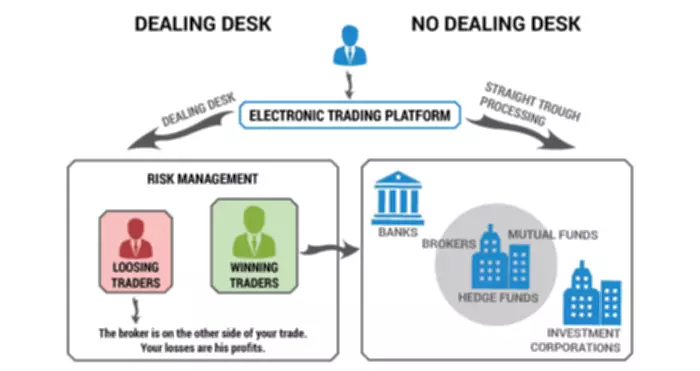Content
With the help of an insurance broker, you can get access to a wide range of policies from different providers, and the broker can help you compare the policies to find the one that offers the best coverage and rates. This can save you hours of research and negotiation, and it can help you find a policy that is tailored to your specific needs. insurance broker risk management Our team delivers customized risk management and insurance solutions to the aviation and aerospace industry.
Differentiate your brokerage and retain clients
They can leverage their relationships with insurers to negotiate favorable terms and conditions on behalf of the policyholder. This includes negotiating competitive pricing, coverage enhancements, and favorable reinstatement terms. Brokers can also help policyholders Cryptocurrency exchange navigate complex policy language and ensure that all requirements for reinstatement are met. Data analytics and reporting platforms are crucial for insurance brokers aiming to gain deeper insights into their clients’ risk profiles.

Understanding Financial Statements for Insurance Professionals
By promoting risk awareness and offering risk prevention advice, brokers help clients minimise exposures and demonstrate their commitment to loss prevention. With clients’ needs evolving constantly, so does the need for different insurance products. This opens https://www.xcritical.com/ an opportunity for insurance brokerages to find a niche that will help grow their business. While the road to discovering a company’s niche market requires a lot of time and effort, it can reap dividends in the long run. Some insurance brokerage firms offer consultative and advisory services to clients as a source of additional revenue.

How do enterprise risk management tools help insurance brokers stay competitive in the market?
With a history dating back to 1871, the company has built a reputation for innovation and thought leadership in the industry. Marsh McLennan’s success stems from its global reach, diverse expertise across multiple sectors, and ability to adapt to changing market conditions. The firm’s commitment to digital transformation and data analytics has kept it at the forefront of risk management solutions. By obtaining comprehensive coverage tailored to the specific risks involved, such as CAR insurance, PI insurance, and Builder’s Risk insurance, you can mitigate potential financial losses and ensure the successful completion of your project.

Just as circuses can’t afford to haul one-trick ponies from town to town, risk managers can’t afford to support siloed, single-purpose SaaS insurance solutions. Investing time, energy and money in risk management resources must address a broad spectrum of needs and exposures. Finding the best enterprise risk management tool for your clients requires a thorough evaluation of their unique business requirements. Begin by examining their current risk management practices and identifying areas that could use enhancement. This careful assessment will help you determine which features and capabilities are most essential for their day-to-day operations and long-term success.
In this section, we will explore the various ways in which IDBs contribute to mitigating risks in the financial industry. Terrorism risks can come from a variety of sources, including extremist groups, lone actors, and cyberattacks. Insurance brokers can help organizations assess the potential impact of these risks on their operations and identify the most appropriate insurance policies to mitigate them. As risk advisors, we provide innovative and bespoke insurance and reinsurance risk transfer solutions for the healthcare industry.
Insurance brokers will assist the client in determining their risks and liabilities and will design or recommend an all-inclusive insurance plan to protect the client against them. Accountants, investment specialists, economists – In compliance with regulation, insurance companies must be able honor all claims made against its policies. There are still some niche industries where insurance agents work directly for an insurance company. In these cases, the agent provides insurance advice to insurance buyers, but the products they offer are limited to what is available and offered through the insurance company(ies) they represent, their employer. Insurance brokers will often work together with the buyer and insurance companies to create and/or negotiate customized insurance solutions specific to the buyer’s operations. Because brokers typically have relationships with many different insurance companies, they can sometimes bring you a more unique and specialized coverage package.
Insurance brokers play a vital role in risk management by helping their clients navigate the complex world of insurance. Insurance brokers act as intermediaries between the insurance buyer and the insurer, working to identify the specific risks faced by their clients and helping them to find the most appropriate insurance coverage to mitigate those risks. By leveraging their industry expertise and market knowledge, insurance brokers can help clients to obtain the best possible coverage at the most competitive rates, while also providing valuable advice and guidance on risk management strategies. Overall, insurance brokers play a critical role in helping businesses to manage risk more effectively. Insurance brokers play a crucial role in advising policyholders on various aspects of their insurance coverage, including policy endorsements.
The insured transfers risk to the fronting carrier, which then issues policies that appear to come directly from the fronted company, thereby meeting legal and contractual obligations. However, a critical component in this intricate process is the involvement of insurance brokers. After conducting a comprehensive risk assessment, insurance brokers should design tailored insurance programs that address their client’s specific needs and risks. By collaborating with insurers, brokers can negotiate policy terms and conditions to ensure optimal coverage.
We will examine the different types of insurance products that actuaries work with and the specific skills and techniques they use to analyze risk. Insurance brokers are independent professionals who work for their clients, not the insurance companies. This means that they have their clients’ best interests in mind and will work tirelessly to find the best policies and rates for them. We provide the reach, resources, expertise, advocacy and value of one of the largest, fastest-growing brokerage firms in the United States. As your advisor and advocate, our industry-focused teams and product experts will work closely with you to identify and reduce your overall cost of risk.
RMIS platforms enable brokers to identify, assess, and handle risks more effectively, providing a comprehensive overview of risk across an organization or portfolio. It provides financial protection, facilitates rebuilding and recovery, contributes to community resilience, and even encourages risk mitigation and prevention. Without insurance, individuals, businesses, and communities would be left vulnerable to the devastating consequences of vis major events.
- It’s crucial to have backup plans in place for any unexpected circumstances that may arise while running a business.
- Setting goals is crucial in giving the business a clear picture of where it wants to go, how to reach these targets, and what new products and services it can offer clients.
- We’ll help determine if your company is right for a captive solution, how it would need to be structured, and recommendations for ongoing management.
- The underwriter works for the insurance company, and the broker represents the client in the negotiation.
Our brokers have a sophisticated risk assessment procedure that analyzes current issues and forecasts future hazards based on historical losses and experiences. Insurance brokers typically start as a junior broker or client services representative with a broad, shallow focus in health, commercial, or personal insurance. As insurance brokers progress through their careers, they will become more and more specialized. Specialized knowledge gives a broker an edge over the competition and adds real value to the client. For example, advice on risk management and claims handling procedures adds both credibility and value. One cannot start an insurance brokerage business without a strong understanding of how the industry works.
We give you 24/7 access to your plan and your policies to help you manage your coverage on your schedule. During events like Hurricane Milton, properties with detailed, up-to-date data managed through Archipelago’s system were better positioned to secure appropriate coverage and respond swiftly to the disaster. Archipelago’s platform revolutionizes data management by prioritizing accuracy and accessibility.
They use their knowledge of the insurance market to identify the best policies and rates for their clients. Terrorism is a global threat that can cause significant losses to businesses, governments, and individuals. They offer expert advice and guidance on the best insurance policies and risk management strategies to protect against terrorism-related losses. In summary, insurance brokers play a crucial role in helping clients navigate the complex insurance landscape. They provide valuable advice, guidance, and support to help clients find the best insurance policies and rates. While DIY insurance shopping may seem like a cheaper or more convenient option, working with an insurance broker can ultimately save clients time, money, and stress in the long run.
Through their extensive network and market knowledge, IDBs can help market participants evaluate the creditworthiness of potential counterparties, reducing the risk of default. One of the key risks faced by market participants is liquidity risk, which refers to the potential difficulty of buying or selling an asset without causing a significant impact on its price. IDBs help manage this risk by providing a platform where market participants can access a wide range of potential buyers or sellers, thereby increasing market liquidity. By facilitating trades and ensuring efficient price discovery, IDBs contribute to reducing the risk of illiquid markets and potential price manipulation. One of the primary responsibilities of inter-dealer brokers is to execute trades with precision, ensuring that orders are matched accurately and in a timely manner.
Leave a Reply